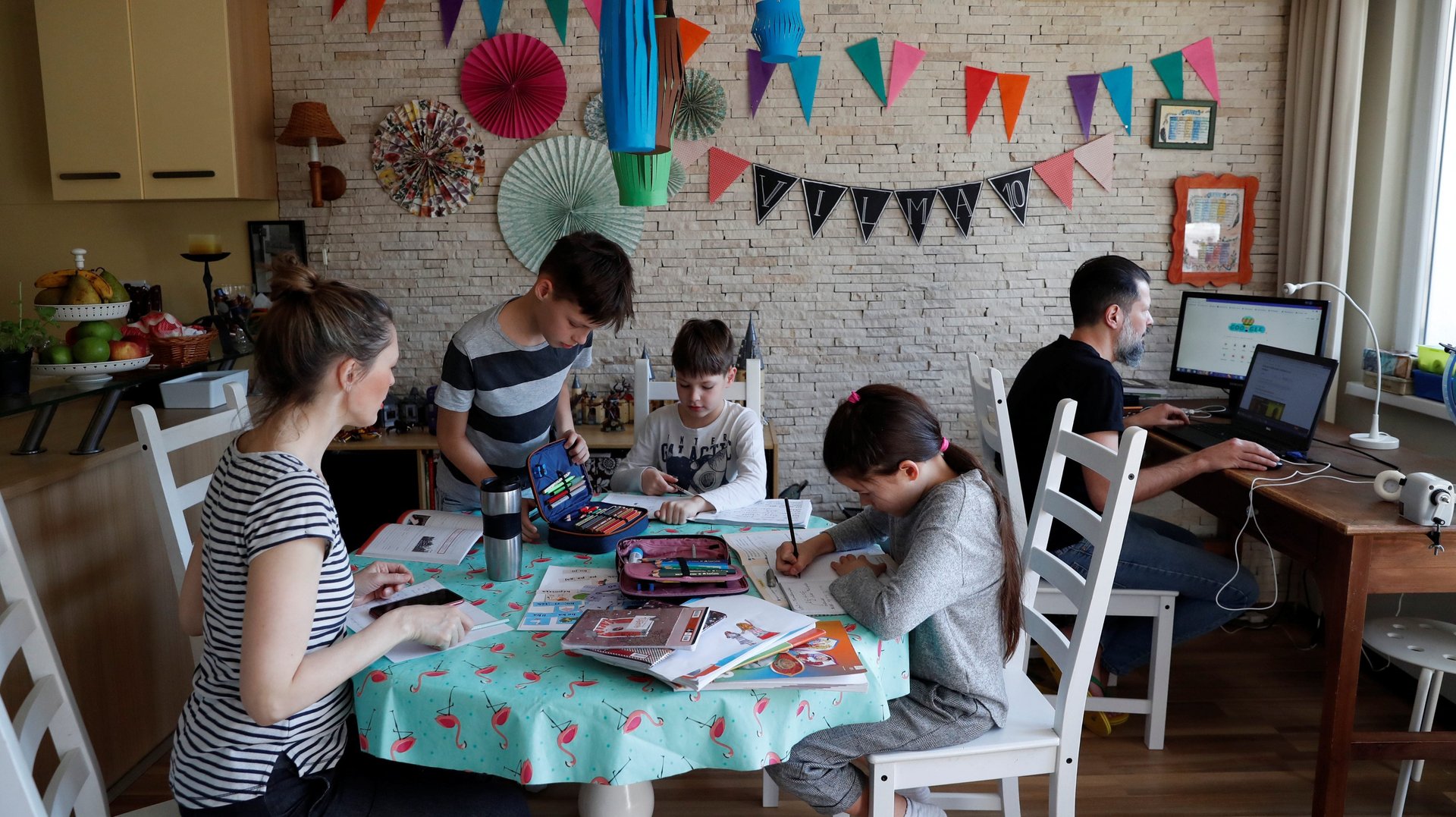Work-life balance is a lie—and coronavirus is exposing it
The current pandemic is forcing us into a moment of reckoning about how we organize work and family in the United States.


The current pandemic is forcing us into a moment of reckoning about how we organize work and family in the United States.
In recent days, and for the foreseeable future—as schools close, hospitals are overwhelmed, and we engage in social-distancing—many of us are being asked to continue our full-time jobs while simultaneously homeschooling our children, attending to elderly relatives and those with special needs, and caring for the sick.
Even for the relatively privileged among us, this is a lot to handle. For the less privileged, the stress is compounded by urgent questions about how they will feed, clothe, and house their families at all.
But the basic elements of this work-life crisis are not new to us. For so long, Americans have pretended that our home lives are irrelevant to our work.
In 1990, sociologist Joan Acker observed that organizations “assume a disembodied and universal worker.” The closest thing to this ideal, she wrote, “is the male worker whose life centers on his full-time, life-long job, while his wife or another woman takes care of his personal needs and his children.” This is attainable, maybe, when men are breadwinners and women are homemakers. But, throughout history, that model has rarely been the dominant one, and it has always been class-specific. And it is not our current reality. Families with two parents, where one is employed and one manages the home, are in the minority now.
Scrambling behind the scenes
While we may talk more about “work-life balance” and even “work-life integration” these days, little has changed since Acker wrote that piece three decades ago. Many of us have no choice but to approach our work like the metaphorical swimming duck, sleek and calm at the top while its feet pump furiously below.
We go about our jobs—manufacturing, selling, teaching, helping—all the while, behind the scenes, scrambling to make provisions for the sick kid who can’t go to school, the special-needs family member who requires routine care, and the elderly relative who can no longer live alone. New mothers come back to work weeks after giving birth, pour their post-pregnancy bodies into office attire, and excuse themselves every few hours to suction milk from their breasts. Applicants are advised about the potential pitfalls of mentioning their families during interviews. Low-wage workers regularly need to choose between caring for family or losing pay, leaving sick children home alone or being terminated.
By bringing domestic life and work into radical collision, Covid-19 has destroyed the façade of our work-life balance. We have stacked up the various elements of our lives like a teetering mess in a kid’s closet. All it took was for someone to thrust open the door, and the board game tokens and jigsaw puzzle pieces came cascading down.
We need a sea change in the way we navigate the intersection of home and work. Some might argue that letting down the divider between home and work could have negative consequences for industry. They might worry about employee productivity, or about childless workers unfairly being asked to pick up the slack for their colleagues with children. They might have fears of employees “taking advantage” of family-friendly policies—of babies caterwauling in conference rooms and interminable parental leaves for new moms and dads who have no intention of returning.
Such scenarios fail to acknowledge that many other countries already offer a range of working family supports that we do not. Without universal childcare, Americans with young children shell out large portions of their income on that expense; unsurprisingly, many of them list childcare costs as the main reason they don’t have more children. We’re unlike most other developed nations in that our workers have neither universal paid maternity leave nor universal paid sick leave. As a result, many people continue to go to work when they are ill, endangering themselves and others—which is particularly frightening in the context of the current crisis. Workers with or without children could benefit from using such policies to care for family members, chosen kin, or themselves.
We can no longer pretend
For too long, we have struggled to perform as though we are “disembodied” when the reality is that we are not. And now the reality has become much more difficult to paper over.
Among the many implications of this virus is that it has immediately shown us something basic and true about ourselves: we have families. And we need to act like it.
It’s difficult to see our way out of the tunnel now; we know from looking at places like China and Italy that disaster looms. But once we emerge from this crisis, we can no longer pretend that our family members are invisible or irrelevant to our working lives. This is the moment we were forced to admit, collectively, that we are not just employees but whole selves. Let’s remember that, before we are tempted to stuff the pieces of our lives back into their tidy boxes and begin again.
Danielle J. Lindemann is an associate professor of sociology at Lehigh University.